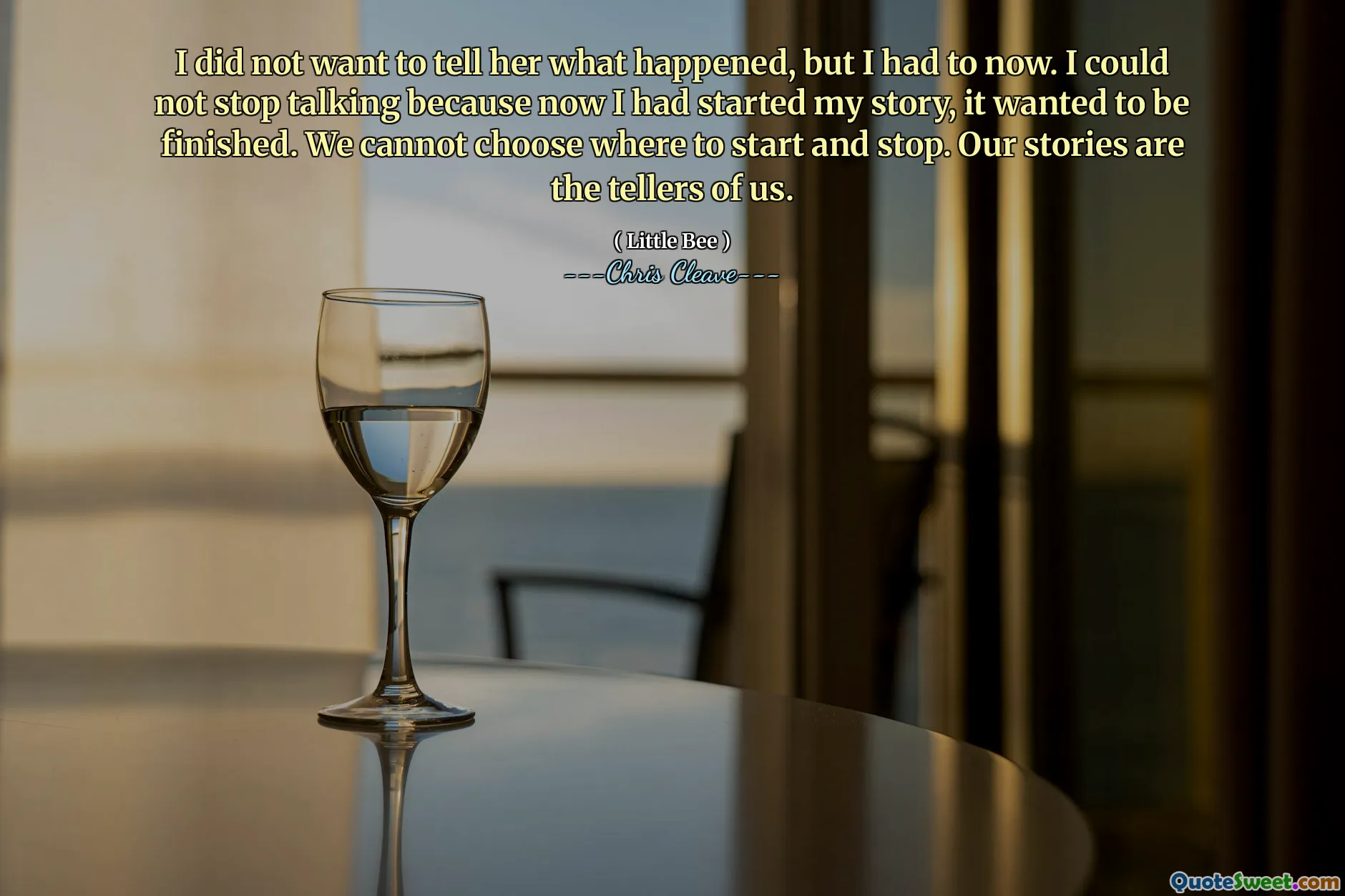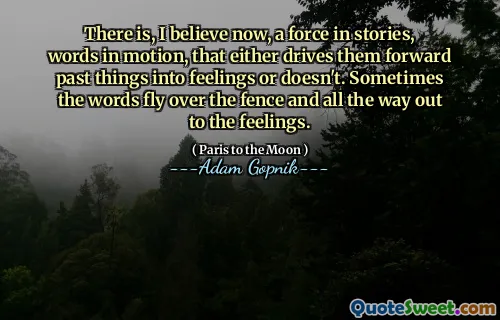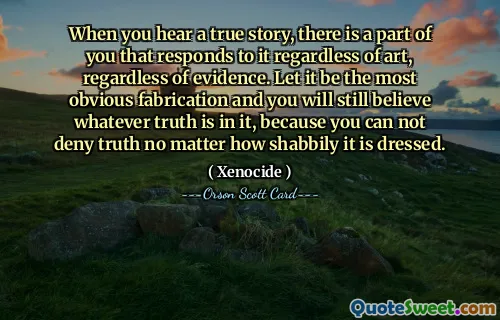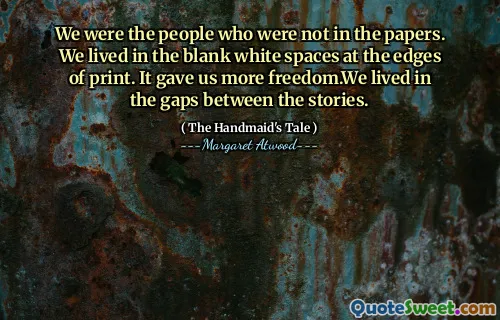
I did not want to tell her what happened, but I had to now. I could not stop talking because now I had started my story, it wanted to be finished. We cannot choose where to start and stop. Our stories are the tellers of us.
This quote touches on the profound importance of storytelling as an intrinsic part of human identity. It suggests that once a story begins, especially the ones deeply rooted in personal experience or emotion, there is a sense of inevitability in sharing it. Our stories are like threads woven into the fabric of who we are, shaping our perceptions, relationships, and self-understanding. The metaphor that the story 'wants to be finished' resonates with the idea that narration is not merely a sequential act but an essential process of making sense of our experiences. When we are compelled to tell or share our stories, it indicates a need for release, clarity, and perhaps healing. The recognition that we cannot choose where to start or stop implies that our narratives are often more complex and non-linear than we might prefer. They emerge from within, driven by emotion and necessity, rather than convenience or choice.
This resonates with the themes in '(Little Bee)' by Chris Cleave, where stories serve as a bridge between different backgrounds, traumas, and lives. Sharing stories creates empathy and understanding, and sometimes, silence carries its own burden. Recognizing that stories are the tellers of us emphasizes that our identities are continuously constructed through the stories we tell ourselves and others. Suppressing a story might feel like holding back a vital part of oneself, but once spoken, it has the power to transform, heal, or deepen one's sense of truth. Ultimately, this quote underscores the inescapable nature of storytelling in shaping human existence, highlighting its necessity and the inherent desire to see our stories through to the end.



